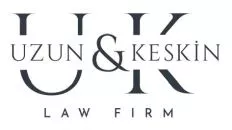Artificial intelligence ("AI"), which once seemed like a concept of science-fiction, has become an indispensable part of everyday life, so that people use AI in everyday activities without even noticing. As AI's significance and reputation grow, it has become a source of numerous conflicts, particularly legal ones. A recent example of how AI models caused a legal dispute is between the two well-known companies, the New York Times Company and Microsoft Corporation.
In December 2023, the New York Times Company sued Microsoft Corporation alleging seven causes of action. The core of their allegations revolves around the claim that their extensive collection of copyrighted works were used to train Large Language Models ("LLM's") of Microsoft's AI models. As a result of such training, models obtain the ability to comprehend word patterns since they train themselves through various contexts. Hence, AI models create works that are almost identical to the New York Times' copyrighted content.
As a response, Microsoft filed a motion seeking to dismiss certain aspects of a lawsuit brought by The New York Times Company. Microsoft claimed that improving the AI technology on articles in question constituted "fair use" under the law since chatbots were a technology which are "transformative" in nature, also added that chatbots create something new and distinct with the copyrighted material. OpenAI also responded publicly to the lawsuit with a blog post they had published. OpenAI declared that they consider the lawsuit as unfair, and also that the New York Times manipulated prompts to extract quotes from articles.
For an LLM to function and generate outputs, it requires comprehensive training on data compilations, which are called datasets, while ensuring that the interests of copyright holders and authors are not being infringed. The lawsuit in question underscores the importance of balancing technological progress with the protection of intellectual property rights. As we move forward, it is becoming more crucial to affirm that balance is maintained in a way that promotes both the development and protection of intellectual property.
Besides, Türkiye also has faced legal challenges as a consequence of the rapid advancement of AI technology. One significant concern is "data crawling", which involves the automated collection of data from various web sources. While data crawling can enhance AI systems by providing valuable training data, it also holds the potential to raise legal and ethical issues. Unauthorized collection of personal data may infringe individuals' privacy rights and violate law in force, such as Türkiye's Personal Data Protection Law. This can lead to significant legal repercussions for organizations that rely on data crawling without obtaining proper consent or ensuring data protection measures. Currently, there is no specific regulation in Turkish law to directly prevent data crawling. However, if the database meets the criteria for being classified as a work under the Law on Intellectual and Artistic Works No. 5846 ("Law"), it may benefit from copyright protection. Nonetheless, not all content on a website can be considered a work. In such cases, it may be possible to benefit from sui generis protection as regulated in Additional Article 8 of the Law. This provision allows database producers who invest significantly in the creation, verification, or presentation of the database content to receive protection if a substantial part or the entirety of the content is involved in activities such as transferring, distributing, or communicating the content to the public.
In conclusion, that rapid evolution of AI requires the establishment of comprehensive legal regulations to address the ethical and legal challenges it poses. As AI continues to become more mainstream, it is crucial to implement a robust legal framework to ensure compliance and mitigate potential issues. Without specific guidelines, the risk of conflicts regarding privacy and intellectual property rights will only increase. By prioritizing ethical standards and legal protections, an environment where innovation thrives while safeguarding individual rights can be fostered. Proactive legal measures will be essential in navigating the complexities of AI, ultimately contributing to a more equitable and secure digital landscape for the future.
The content of this article is intended to provide a general guide to the subject matter. Specialist advice should be sought about your specific circumstances.


